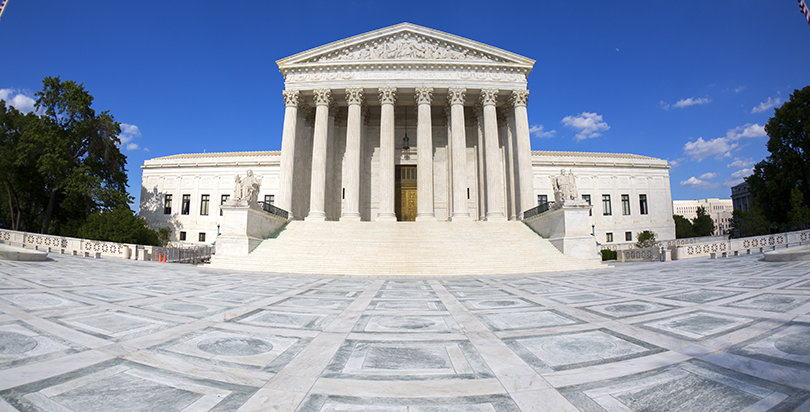Janus v. AFSCME: Lawyers in Key Union Case Appeal to U.S. Supreme Court for 2017–18 Hearing

Mike Antonucci’s Union Report appears Wednesdays; see the full archive
Everyone and his brother in the education policy world spent Tuesday morning watching Secretary of Education Betsy DeVos testify before the Senate Appropriations subcommittee. But while that D.C. showdown was streaming live, attorneys for the plaintiff in the case of Janus v. AFSCME were quietly making it official and filing for review by the U.S. Supreme Court.
It’s the latter story that will have broader ramifications. If, as widely expected, the court ultimately rules in favor of Mark Janus, it will put an end to the practice of public sector unions charging agency fees to non-members.
Since only four justices are required to grant a writ of certiorari, it is virtually certain the case will be accepted for the court’s next session, beginning in October. Barring unforeseen delays, oral arguments should be heard in the winter and a ruling issued by June 2018.
Janus works for the Illinois Department of Healthcare and Family Services. In a statement, he explained why he brought his case: “To keep my job at the state, I have to pay monthly fees to the American Federation of State, County and Municipal Employees, a public employee union that claims to ‘represent’ me,” Janus says. “I’m filing this case on behalf of all government employees who want to serve their community or their state without having to pay a union first.”
Government workers in 20 states, including public school teachers, are required to pay agency fees if they choose not to join the union. Should the U.S. Supreme Court rule in favor of Janus, teachers unions estimate they could lose between 20 percent and 40 percent of their membership in those states.
As I reported last week: The National Education Association has modified its proposed budget for 2017–18 to include an estimated loss of 20,000 full-time equivalent members. This seems accurate because even larger losses won’t be felt until the 2018–19 school year. The California Teachers Association’s executive director recently warned activists to be prepared for membership losses as high as 30 percent to 40 percent. Despite his alert, CTA does not seem to have made any adjustments to its own 2017–18 budget. The United Federation of Teachers’ New York City local estimates a 20 percent reduction in membership and feels it can safely cut $16 million, which is about 10 percent of the annual dues it collects. Read my full analysis of how unions are bracing for the fallout.
Get stories like these delivered straight to your inbox. Sign up for The 74 Newsletter

;)